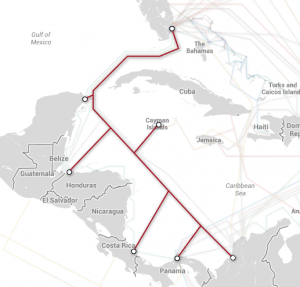The Cayman Islands Agrees to Share Tax Data with the Five Eyes Countries
 Apparently, the people at Treasury don’t need to take advantage of the Black Friday sales. Instead, they’re at work and announcing that the Cayman Islands (and Costa Rica) will share information on US taxpayers with the IRS. The move comes after the Brits rolled out a similar agreement earlier this month.
Apparently, the people at Treasury don’t need to take advantage of the Black Friday sales. Instead, they’re at work and announcing that the Cayman Islands (and Costa Rica) will share information on US taxpayers with the IRS. The move comes after the Brits rolled out a similar agreement earlier this month.
I assume we’ll see other advanced countries demand similar agreements. But for the moment, just the NSA and GCHQ’s home countries will be able to learn which of their citizens are stashing money in one of the world’s most important tax havens (and one that has been important to Anglo-American financial dominance).
There are two submarine cables serving the Cayman Islands. One — Maya 1 — carries telecom traffic to Hollywood, FL. It is owned, in part, by NSA spy partners AT&T and Verizon. The other carries traffic to Jamaica. Another of the cables that serves Jamaica lands in Boca Raton. A third carries traffic to British Virgin Islands. From BVI, cables carry traffic directly to several other landing spots in the US, as well as — by way of Bermuda — Canada.
Earlier this year, someone leaked massive amounts of data on BVI’s tax shelter clients and habits (though curiously, no US persons were identified among the most prominent culprits). As far as I know, no one has ever discovered how that data got leaked, and there seems little concern from the powers that be about this leaker who, after all, was as audacious as Chelsea Manning or Edward Snowden.
Now, I’m not saying that the US and UK were already stealing Cayman Islands’ data. I’m only saying that doing so would be perfectly within the known practices of America and Britain’s spy agencies.

Interesting that the leaker(s) focused on Cayman Island, but not Bermuda, the other tax haven frequented by so many of the Fortune 1000 companies—though many of their captive reinsurance firms are also in Caymans.
Or content that might have gone through submarine cable with a Colombian landing point rather than Venezuela (like GlobeNet does which also supports Bermuda).
@Rayne: No. Leaker focused on BVI, not Cayman Islands.
@emptywheel: Yeah, the story and the leak all show BVI all over the place — but to me it reads like pressure to push the biz back to “accepted” havens. It seems bloody odd to me that Caymans would be so helpful.
Edit — 7:42 pm EST —
Also Cook Islands are mentioned 5 times in the article you linked–made a point of including a photo of an office there. Have wondered if the real crux was the Iranian bit and an indirect threat with the leak to Iranian-related supporters doing biz in BVI that they can’t go to Cook Islands to run (TPP might also contain tools to monitor info to/from Pacific havens) and to go to an “accepted” haven rather than continue their current line of biz.
@Rayne: I guess I’m suggesting that after one more minor haven was ruined — all while BVI officials kept screaming about where the data might have come from — the other havens started seeing the wisdom of sharing data on US and UK citizens.
@emptywheel: We agree there was pressure on somebody by way of this “leaked” material.
This, though, skews my perception of the real target of pressure:
BVI is shooting for Bermuda- and Caymans-like business, but of the seedier sort. Cook Islands is a very different market.
And this, under Bush’s first term:
Intended ultimately to be the Switzerland of PacRim:
Was this “leak” not only pressure on those using unacceptable havens but an end-run on whomever benefits most from Singapore, to tell them “you’re touchable”?
Yes, the leaks concerning the BVI have the earmarks of a routine hit by a competitor. It’s rather like the world’s biggest insider trader leaking news of the insider trades made by the people who refused to join his board and participate in his wish for monopoly insider trading deals.